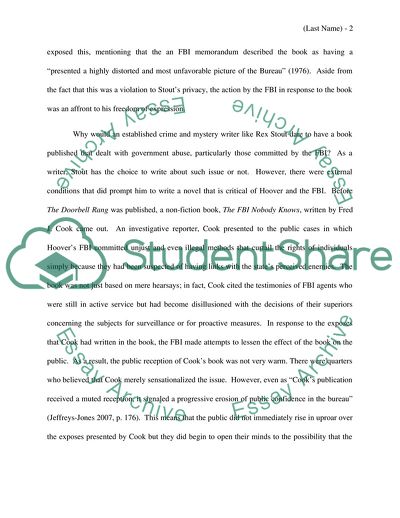The Doorbell Rang: A Critique of Hoovers FBI Book Report/Review Example | Topics and Well Written Essays - 1500 words. https://studentshare.org/literature/1765076-composition
The Doorbell Rang: A Critique of Hoovers FBI Book Report/Review Example | Topics and Well Written Essays - 1500 Words. https://studentshare.org/literature/1765076-composition.


